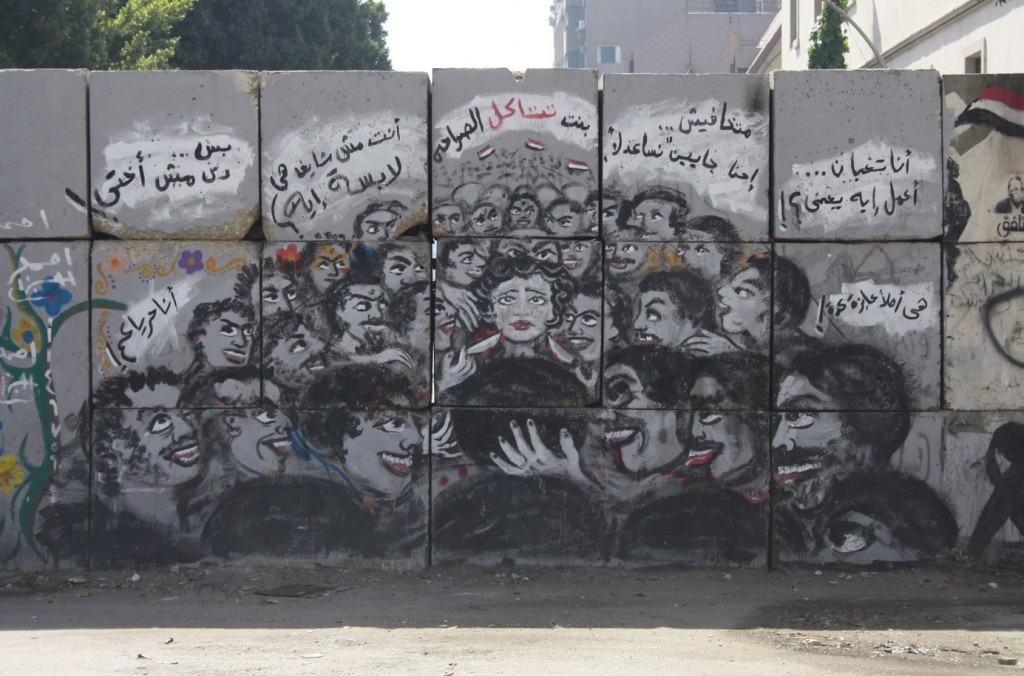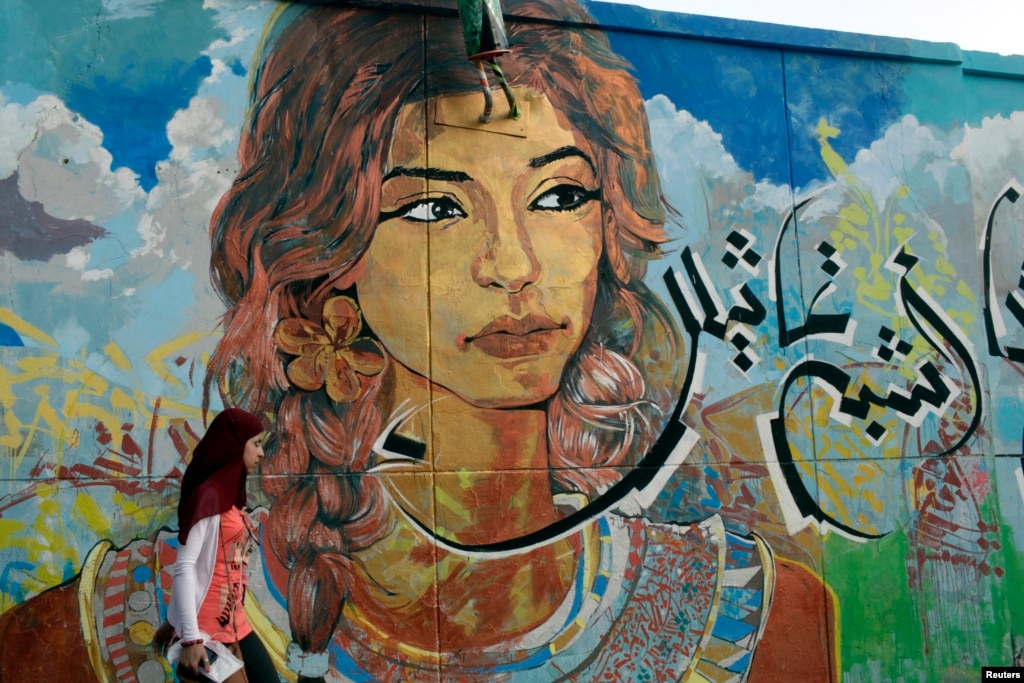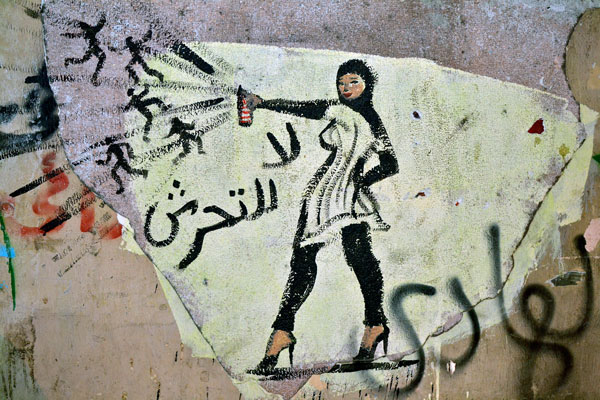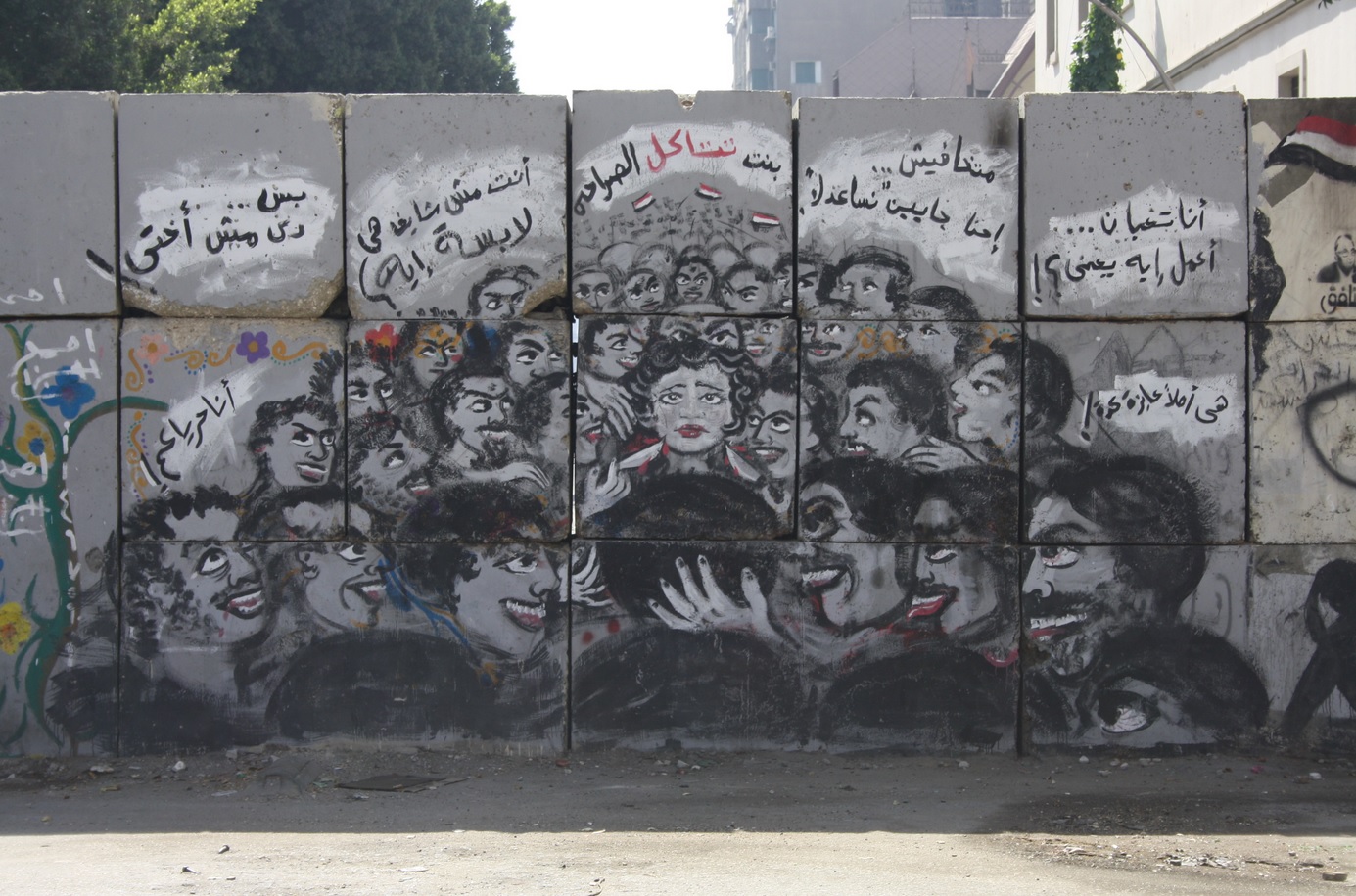
In the past few years, Egypt’s streets haven’t been the most welcoming of spaces to women of all ages. Getting the simplest things done now require them to constantly think about what to wear, how to walk and when the right time is to run an errand.
It isn’t easy when they feel that every eye is checking out their bodies. Sadly, justifications for doing so like “She was the one asking for it with her tight blouse and jeans” or “What am I supposed to do without any money to marry someone?” are still advocated and widely accepted by our society up to this day.
Defining the problem
According to the survey released in April 2013 by The United Nations Entity for Gender Equality and the Empowerment of Women on sexual harassment, 99.3 percent of Egyptian women are sexually harassed in one way or the other, 96.5 percent of whom said that harassment was physical, and 95.5 experienced sexual harassment through verbally abusive language.
The distinction between physical and verbal abuse within the context of sexual harassment led to a wider and debatable definition of the term; is verbal slur considered a form of sexual harassment? If so, how about when a man sexually gazes at women, is that a form of harassment or a much milder type of provocation that is devoid from any sexual meaning?
According to Monica Ibrahim, Harassmap’s Communication Manager, an initiative intended to create an environment rejecting all kinds of sexual harassment, harassment is “any word or action which has any kind of sexual connotation and is provoking the space of the person being harassed without his/her consent”.
Ibrahim brought much emphasis on the term “consent” being the most important part of the definition, since it has to be expressed in any way known and without it, the action or word is considered as harassment.
Sexual harassment is no longer confined within the physical context of the act, especially among those who are young of age as reported in a study conducted by Harassmap. Respondents aged 25-29 of both genders seemed to have a broader perception of what sexual harassment is than respondents aged 40-45. Among the younger group, 37.1 percent consider catcalls as one form of sexual harassment unlike the latter group with only 18.9 percent of them thinking the same.
Why is it happening?

Despite having a more concrete definition among those who are young of age, there’s no wide consensus on the reasons causing this phenomenon due to “the lack of studies before 25th Jan revolution,” as Ibrahim pointed out.
Some attribute it to the lack of education, lack of public safety, and poverty, but there’s a major focus on the societal acceptance of sexual harassment as being one of the main drives behind its growth in our society. The streets witness a high level of tolerance towards sexual harassment especially when it comes to justifying the act. Accordingly, the most influential way to fight it is by rectifying the society’s perception of it, argued Ibrahim.
Fortifying what Ibrahim expressed about harassment, Menna Azmy, a lead organizer in the upcoming anti street harassment event, “عرض الشارع”, provides her insight on the role of public space in sexual harassment.
According to Azmy, “Sexual harassment could be brought back to the idea of repetition.”
Under the right circumstances, the prolonged exposure to the same scenery makes everything look meaningless and abstract, people lose their identity and faces become the same to the harasser.
CLICK HERE TO KEEP EGYPTIAN STREETS RUNNING
With societal acceptance of sexual harassment reaching critical levels, and public spaces being rendered as unsafe spaces for women of all ages, harassment is sometimes used as a tool to serve other goals. This was obviously seen in mob assaults on female activists and protesters back in 2011 in order to prevent and scare them from participating in 25th Jan revolution.
Aside from the above, others have attributed sexual harassment to the notion of gender power dynamics as phrased by Nouran Maher, a Political Science graduate as: “An expression of power or domination; many men in Egypt would not harass a woman from their neighborhood or close community because they have no perceived sense of power over her, or they know that she has an effective male accompaniment (someone of equal power to himself).”
A Change in perception?
Due to the recent exposure on sexual harassment in Egypt after 25th Jan revolution, NGOs became more vocal about the phenomenon, and fight it through social campaigns and legal measures like Shoft Tahhroush, Nazra and BuSSy.
Unfortunately, the heightened focus on sexual harassment did not lead to an increase of rejection from the bystanders’ point of view. According to said study, only 17.7 percent intervene upon witnessing an incident of harassment, with male respondents showing more proactivity than women on this matter.
In addition, men’s perception towards women and harassment showed no clear signs of change. Nearly half of the male population who were involved in the study blamed women for their tight clothing when asked about the reason behind harassing them. Furthermore, 37.1 percent said that women wanted to be harassed, and were asking for it.
Results from the study also show that males from different educational backgrounds practice one form or the other of harassment. Nevertheless, respondents with secondary education (81 percent) are more likely to harass women than those with higher education degrees.
What can be done?

While sexual harassment is a result of a mixture of factors, Ibrahim asserts on “the importance of changing societal perspective regarding sexual harassment.” This can be achieved through an emphasis on campaigns that shed light on how tolerant people have become towards sexual harassment and the severity of the problem, in addition to implementing already existing laws, and intervention groups that work on a daily basis against the occurrence of sexual harassment cases.
Vigorous efforts must be exerted in order to restructure public spaces in Egypt as safe and equal in rights for both men and women. “The reinvigoration of our city’s lifeline will re-instate the street as a publicly owned place that everyone is equal parts of, where everyone should feel safe in, and use in only positive ways,” expressed Azmy, adding “Severe penalties and punishments will only cure the superficial aspect of the problem, maybe even drive it a bit down, but in the end the real change has to be a level or two deeper.”
An Everyday Guide to fight sexual harassment
While many endeavors take place to influence social change and enforcement of laws, it may be a few years before positive results start to take form. Meanwhile, Harassmap offered us a guide on the dos and don’ts of handling an incident of sexual harassment as a victim or a bystander:
Dos:
- Speak up against it
- Report the incident to Harassmap via SMS 6069 and /or Facebook and Twitter
- Talk about it with your family and friends, or online (#endSH)
- Report it to the police
- Seek legal help from NGOs like Nazra
Don’ts:
- Be silent
- Blame the harassed
- Excuse the harasser
- Join the harasser






Comments (36)
Alas, those individuals form the majority of the Egyptian public.
Thanks for addressing this rampant topic again. Unfortunately it remains an issue and seems to be spreading accross Egypt. Not only in actual conducts but also in acceptance.
The link to education triggered me to think about this a bit further. Higher education in Egypt remains a privilege for the social-economic more advantaged among us. So is it the level of education which determines the way in which women are viewed, or is it the social-economic environment which surrounds the potential harasser? I don’t know the numbers, but as a woman who likes to roam the streets of Egypt, I do experience a lot more penetrating eyes in Down Town Cairo than in Rehab’s new Down Town minimum-charge coffee bars. Is it because people are smarter in Rehab than in Abdeen? Or is it because the residents of Rehab come from classes (yes, Egypt has a big class issue) which have access to more gender-mixed environments and institutions? Public schools are of poor quality and have more and more become a last resort for the poor. The elite, able to afford better private education, removed their children into different institutions. Where public schools are often gender segregated, private schools are usually mixed which naturally influences the way in which the other sex is normalized. What I’m trying to question here, and I’m likely to assume, is that large parts of Egypt’s society, and this number is growing along with poverty and the deterioration of public services, are raised in an enivornment where the other sex is ‘exotic’. Combined with the already present paternalistic culture, this exotism of the opposite gender leads to men dominating the public spheres and degrading women to mere visitors in the predator’s dominion, and thus a potential prey. This, I believe, is also why often men consider it the woman’s responsibility since she enters ‘his’ territory so she is the one that should know that she could be eaten alive.
Though the argument “What am I supposed to do without any money to marry someone?” doesn’t justify their behavior, I do think this should not be underestimated as truth – to the harasser. Marriage has indeed become more and more a privilege only the elite can afford. And all of society, including women (potential mother’s in law), are responsible for this. Where back in the old days of Islam a dowry could be worth a date (balah), in our contemporary capitalist culture it would be a joke to hear a father marry his daughter to the man she fell in love if he would be the one selling dates in the streets. As long as society rejects poor men from being potential spouses, what indeed is their alternative for interacting healthy and equally with the opposite sex? Don’t get me wrong, I’m not justifying harassment by the poor. I am objecting to our culture looking down on poor men, as though they can not be good loving husbands. There is a reason the claim “I cannot afford marriage” is accepted as justification. It is because we (both genders) have turned love into a commodity of blood-diamond value.